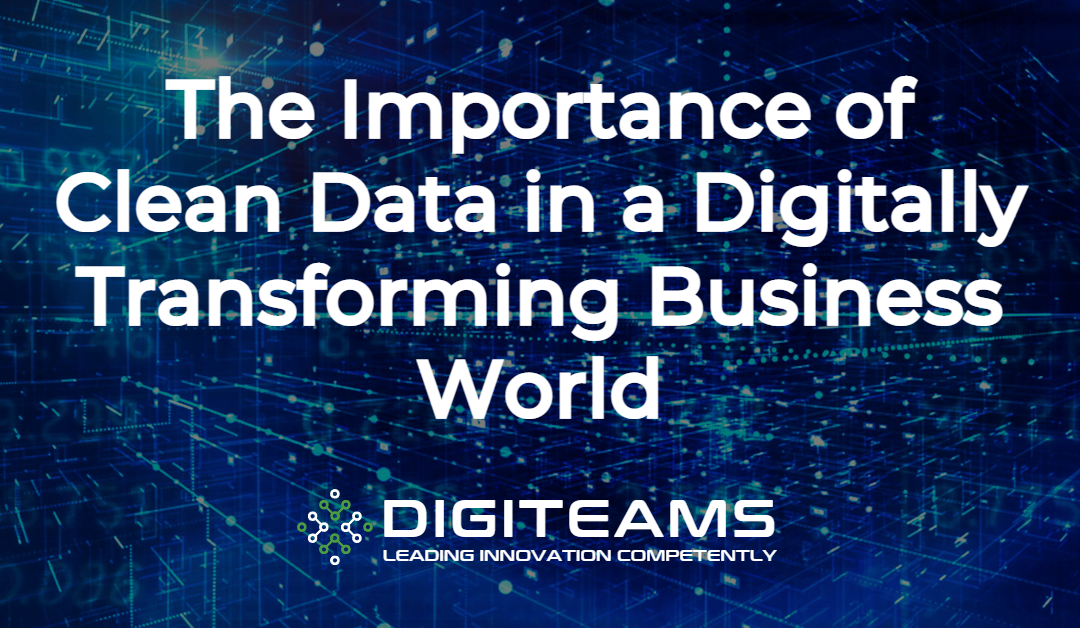The world is rapidly transforming digitally, and data has become one of the most valuable assets of businesses. In today’s world, data is generated at an unprecedented rate, and businesses must find ways to manage it effectively to drive growth and success. However, with the massive amounts of data being generated, it is crucial to ensure that the data being used is clean and of high quality. In this article, we will explore the importance of having clean data in a digitally transforming business world.
What Is Clean Data?
Clean data is accurate, complete, consistent, and free from errors. It is data that has been verified, validated, and standardised to ensure its reliability and usefulness. With clean data, businesses can make better decisions, improve their operations, and gain a competitive advantage in their respective industries. Here are some of the reasons why having clean data is crucial for businesses in a digitally transforming world.
Accurate Insights
-Poor data quality costs businesses an average of $3 trillion per year.
-Inaccurate data can lead to an average revenue loss of 7% for businesses.
Clean data provides accurate insights, which are essential for making informed decisions. With clean data, businesses can analyse trends, identify patterns, and make predictions based on reliable information. This information can be used to improve business processes, optimise resources, and drive growth. On the other hand, inaccurate data can lead to erroneous insights, which can result in poor decisions that can harm the business.
Improved Customer Experience
-78% of consumers say that personalised content from brands increases their purchase intent. (Forbes)
-Companies that personalise the customer experience see a 19% increase in sales. (Salesforce)
Clean data can help businesses improve the customer experience by providing a better understanding of their customers. With accurate data, businesses can identify customer needs, preferences, and behaviour and use this information to develop products and services that meet their expectations. Clean data can also help businesses personalise their marketing campaigns and provide targeted advertising that resonates with their customers.
Better Data Security
-The average cost of a data breach is $3.86 million. (IBM)
-The global cybercrime market is expected to reach $10.5 trillion by 2025. (Cybersecurity Ventures)
Data breaches can cause severe damage to businesses, including financial loss, reputational damage and legal repercussions. Clean data is easier to secure, and businesses can implement stronger security measures to protect it from cyber threats. By ensuring that their data is clean, businesses can reduce the risk of data breaches and protect their customers’ sensitive information.
Increased Efficiency
-70% of companies believe that data accuracy and completeness are essential for achieving their business objectives. (Experian)
Clean data can also improve the efficiency of business operations. With accurate data, businesses can automate processes, reduce manual labour, and eliminate errors that can slow down operations. This can save time and resources, allowing businesses to focus on other critical aspects of their operations.
Conclusion
Clean data is critical for businesses in a digitally transforming world. It provides accurate insights, improves the customer experience, enhances data security, increases efficiency, and ensures compliance with regulations. Businesses must invest in data cleaning tools, implement data quality checks, and train their employees to ensure that their data is clean and of high quality. With clean data, businesses can unlock the full potential of their data and gain a competitive advantage in their respective industries.
